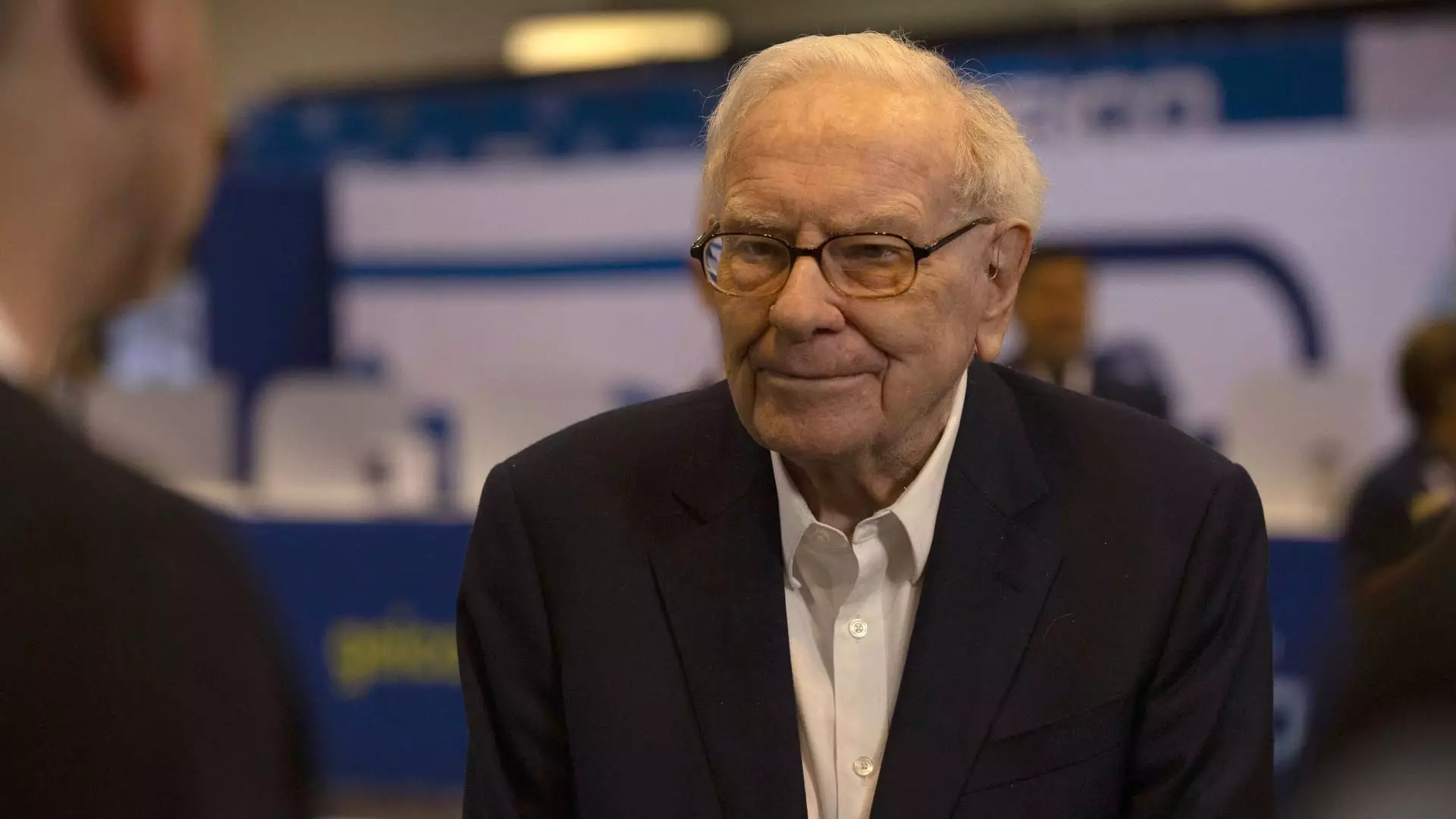Berkshire Hathaway, the investment behemoth led by Warren Buffett, showcased an impressive trajectory for its fourth quarter of 2024, revealing an eye-catching surge in earnings from its diverse operational spectrum. Despite ongoing trials, particularly in its insurance sector linked to recent natural disasters, the conglomerate’s financial performance underscores its resilience and strategic positioning within the marketplace.
The company reported an astonishing 71% spike in operating profit, boasting $14.527 billion for the last quarter of 2024. This sharp increase can be largely attributed to the insurance division, which experienced an extraordinary 302% increase in underwriting profits, reaching $3.409 billion. Simultaneously, investment income from insurance operations soared nearly 50% to $4.088 billion. Collectively, these figures highlight Berkshire Hathaway’s ability to leverage its extensive portfolio of wholly-owned subsidiaries effectively, even in a landscape marked by uncertainty.
Buffett, in his annual letter to shareholders, expressed a sense of optimism despite noting that 53% of the company’s 189 operating businesses experienced a decline in earnings. This disparity illustrates the complexity of the conglomerate’s performance across various sectors, providing a nuanced picture of success and challenges intertwined in its operational framework. “In 2024, Berkshire did better than I expected,” he reported, citing an unexpected boon from improved Treasury bill yields and a significant increase in liquidity, which reflects a strategic maneuver aimed at safeguarding the organization’s future.
The insurance sector, particularly the performance of GEICO, played a pivotal role in driving Berkshire’s overall earnings. Nonetheless, it is imperative to note the shadow cast by the wildfires that ravaged parts of Southern California, which are expected to yield a pre-tax loss of approximately $1.3 billion for the insurance arm. This impending loss spotlights the inherent risks in the insurance industry, particularly concerning natural disasters that can dramatically influence profitability.
While the insurance segment flourished during the year, the uncertainty posed by these calamities serves as a stark reminder of the volatile landscape in which Berkshire operates. It reflects the broader trend within the insurance market and prompts a deeper examination of the risk management strategies deployed by the conglomerate.
Ending the year with a cash reserve of $334.2 billion, up from $325.2 billion in the third quarter, Berkshire Hathaway appears to be maintaining a robust liquidity position. Buffett defended this substantial cash reserve amid scrutiny of the company’s investment strategy, arguing that despite what might be perceived as an “extraordinary cash position,” a significant portion of shareholders’ funds still resides in equities. The decline in marketable equities was partly offset by an increase in the value of non-quoted controlled equities, which despite challenges, remains a focal point of Berkshire’s investment philosophy.
Buffett reassured shareholders that the intent remains to allocate a majority of their funds into equities in the long run, emphasizing a commitment to sound investment practices even during market fluctuations. This highlights an ongoing belief in long-term value creation, an ethos that has characterized Berkshire Hathaway since its inception.
Despite its robust operational performance, Berkshire faced a notable decline in investment gains for the fourth quarter, which dropped dramatically to $5.167 billion from a staggering $29.093 billion in the previous year. This decrease raises questions about the broader market dynamics and the strategic choices that led to the reduction in stock investments throughout the year. The reduction of Apple shares within Berkshire’s portfolio signifies a strategic shift, possibly influenced by market conditions and investment titans’ evolving perspectives on tech equities.
Berkshire’s overall earnings for the fourth quarter totaled $19.694 billion, reflecting a 47% decrease from the previous year’s $37.574 billion, while the total income for 2024 marked an overall decline to $88.995 billion, a 7.5% decrease from 2023’s $96.223 billion. These figures prompt a closer inspection of the factors affecting overall profitability, especially given the fluctuating landscape of investment opportunities.
While Berkshire Hathaway showcased exceptional resilience in certain sectors, the looming challenges and shifts in investment strategy encapsulate the need for a balanced approach in navigating an unpredictable market. As the conglomerate moves forward, it remains poised to leverage its operational strengths while addressing the complexities inherent in today’s economic environment.

